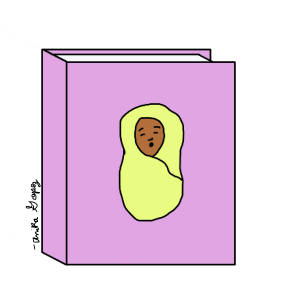Angela Garbes (she/her)
by Jadyn de Jesus

Angela Garbes is a 40-year-old Filipina American writer and speaker based in Seattle, Washington. She comes from a family of immigrants who emigrated from the Philippines during the health worker shortage in the United States. Garbes currently lives in Beacon Hill with her two daughters and husband. Her first book in 2018, Like a Mother: A Feminist Journey Through The Science And Culture Of Pregnancy, presented her feminist take on cultural myths around pregnancy and motherhood. Within her book, she brings her perspective as a woman of color and talks about inequities that mothers in American society face. Her writing has been featured in articles, television, and radio shows such as The New York Times, The Cut, Bon Appetit, Fresh Air, and The Daily Show. Additionally, she has been awarded National Public Radio (NPR)’s Best Book of the Year and she was a finalist for the Washington State Book Award in 2018.
Amid the 2020 pandemic, she lost stability in writing and focused on caretaking for her family. However, her increased time alone at home sparked a new topic of interest that she wanted to share with the world through another book. The COVID-19 pandemic closed school operations but still called for essential employees to work, causing many mothers to find a balance between keeping their jobs and maintaining their households. Garbes found importance in childcare as schools and health centers shut down, but she felt that her efforts were going unnoticed. As a result, she came out with a national bestseller, Essential Labor: Mothering as Social Change, in which she dives into how society is highly dependent on caregivers and mothers, with a lack of additional support.
She argues that caregiving is essential work that all humans do; it is not defined by gender or those who are able to give birth. Mothering is displayed in the United States culture as a lifestyle of love–invisible labor that is typically expected of women. In Essential Labor, Garbes brings awareness to the hard unpaid labor of mothers and caregivers. She shares that in order to balance parenting with maintaining a full-time job, much of those efforts are outsourced by other women of color. Domestic labor is not financially rewarding but undervalued in many cultures as well. The domestic labor of mothers is what makes professional work possible within our communities. Garbes acknowledges how the pandemic has exposed many societal and systematic issues. However, she calls for community engagement. Loving and caring for others is the backbone of society and something that everyone can do to support one another. In publishing Essential Labor, Garbes launched a call for action that will influence how social norms see mothers and caregivers.

